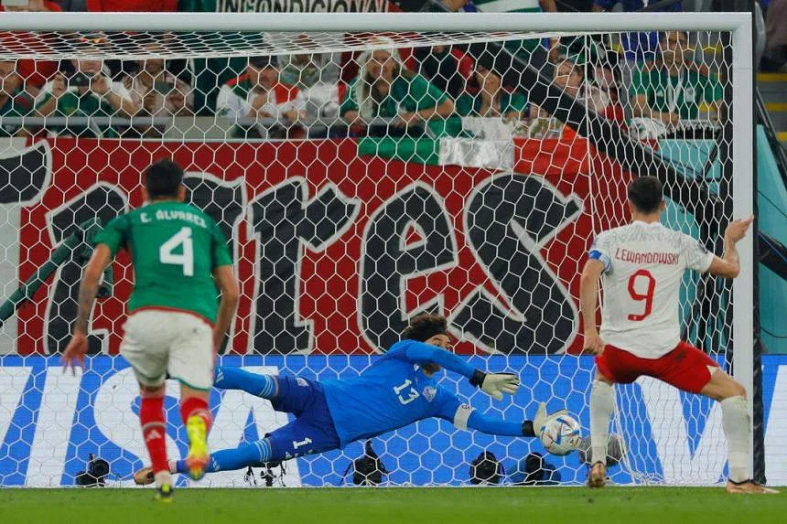Penalty-taking often a mental game, say former Lions
His ability to remain calm in high-pressure situations and deliver in crucial moments made Mustafic Fahrudin one of Singapore’s most reliable penalty takers.
For the man who has scored several important spot kicks, including one each in the 2007 and 2012 Asean Football Federation Championship finals, two things are essential – lots of practice and staying calm under pressure.
Football’s Russian Roulette has come under the spotlight again at this World Cup, with several stars missing their penalties.
Even Lionel Messi, who converted from the spot in Tuesday’s 3-0 semi-final win over Croatia, had a penalty saved during their group match against Poland on Dec 1, but La Albiceleste went on to win 2-0.
But in other cases, such as Harry Kane’s over-the-bar effort during England’s 2-1 quarter-final defeat by France last Saturday, failure to score from 12 yards meant an early ticket home.
Fahrudin, 41, said: “On the day itself, it’s about how calmly you can approach the penalties. You need to practise penalties, you must know what you want to do.”
During his playing days, he often had penalty-taking sessions in training, especially on the eve of a big match. He would set his target and make sure he hit it at least 20 to 30 times.
Sometimes he practised on his own, but he also made wagers when he trained with the team’s goalkeepers such as Lionel Lewis and Hassan Sunny – whoever won the challenge would owe the other coffee.
So who had to buy more coffee? It was 50-50, said Fahrudin. “That’s how we pushed each other,” he added.
While practice is key, that may not always translate into results. Spain coach Luis Enrique, who was sacked after the 2010 champions’ exit, said he had told his players to take 1,000 spot-kicks each before the World Cup. But all three Spanish players – Pablo Sarabia, Carlos Soler and Sergio Busquets – failed to score as La Roja lost 3-0 on penalties to Morocco in the round of 16.
Poland’s Robert Lewandowski, who boasted a 90 per cent success rate in penalties before the tournament, had some tough luck with spot kicks this time. In a 0-0 draw with Mexico in the group stage, his penalty was saved by Guillermo Ochoa, while in the round of 16, he scored only when he retook his spot-kick against France, after Hugo Lloris was penalised for coming off his line.

While his stuttering run-up in both penalty attempts against France was not uncommon, it surprised pundits like former England captain Gary Lineker.
Former Singapore goalkeeping coach John Burridge explained: “The penalty takers are looking for the goalkeepers to move first, and they are trying to take the piss and fool them. That’s why some of them are not hitting the penalties hard and are missing more now.”
Burridge, who played for 29 clubs and amassed 771 games in the English and Scottish leagues, added that penalties that are hit with power and put in a corner make it 10 times harder for goalkeepers, citing Graeme Souness, Glenn Hoddle and Alan Shearer as examples of the best penalty takers he had come up against.
What is often more crucial than the kick itself is the battle that is waging in the player’s head just before he steps up to the spot.
In their autobiographies, former England stars Michael Owen and David Beckham talked about not being able to think normally or breathe properly in the minutes before taking a penalty at a high-level international tournament.
Former Singapore international Steven Tan, a household name during the Malaysia Cup days in the early 1990s, said penalties are mental games. He recalled having to block out thoughts about missing the spot kick as well as the opposition goalkeeper’s trash talk.
“It takes guts to take a penalty,” said the 51-year-old, adding that it is getting tougher as technology has allowed players’ penalty-taking habits to be analysed.
Louise Ellis, a senior lecturer in Britain’s University of Huddersfield’s division of sport, exercise, and public health, believes it is about re-creating the high-pressure situation while practising penalties during training.
The former Wales hockey goalkeeper had published a paper in 2021 which stated that shot accuracy deteriorated under stress. Her research with Under-18 professional academy footballers found that under the simulated high-pressure situation, the players’ level of anxiety, perceived pressure and respiration rate were much higher.
The study also revealed that they were less confident in their ability to score and their shot accuracy became much more inconsistent.
At the end of the day, it could all boil down to how well prepared the player is, be it the penalty taker or the goalkeeper.
Tampines Rovers custodian Syazwan Buhari, who saved a crucial penalty in their 4-3 shoot-out win over Warriors in the 2019 Singapore Cup final, believes it is a combination of preparation and intuition.
His goalkeeper coach does research on possible takers and sends video clips of the last three kicks that the player took and also looks at the penalty taker’s run-up to the ball.
Syazwan, 30, said: “Sometimes they may already have a bad game, they may be a bit shaky and sometimes that’s when I’ll try to get into their head like talk to them before the kick or just shout before the kick.”
Lewis, 39, added: “A lot of people say it’s based on luck, but if you fail to prepare, you prepare to fail."
- Additional reporting from David Lee
Get The New Paper on your phone with the free TNP app. Download from the Apple App Store or Google Play Store now


